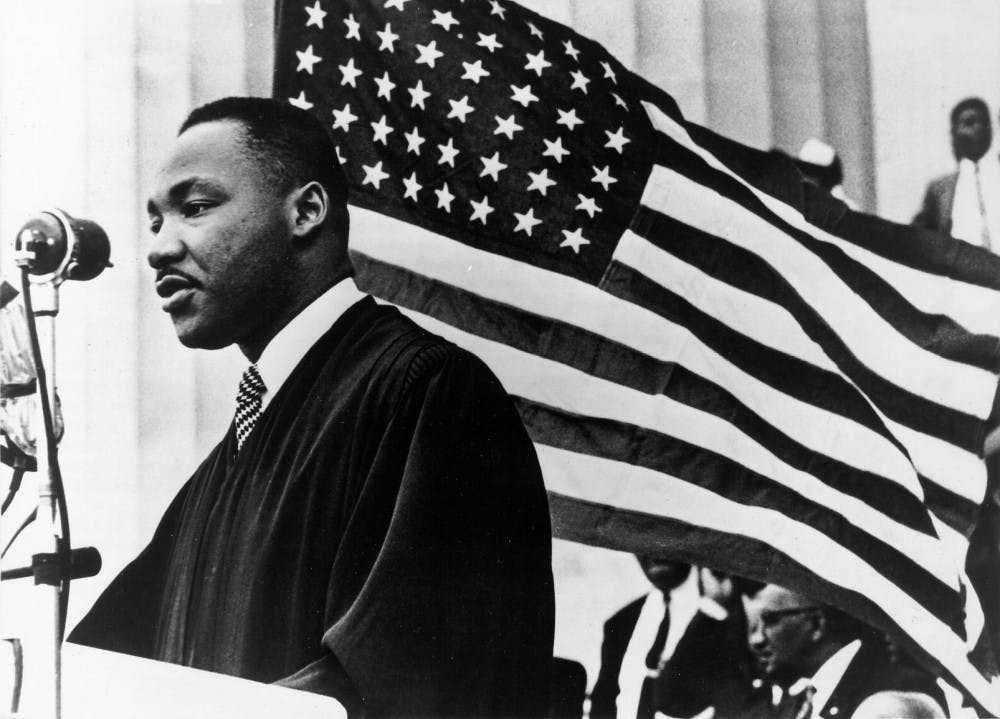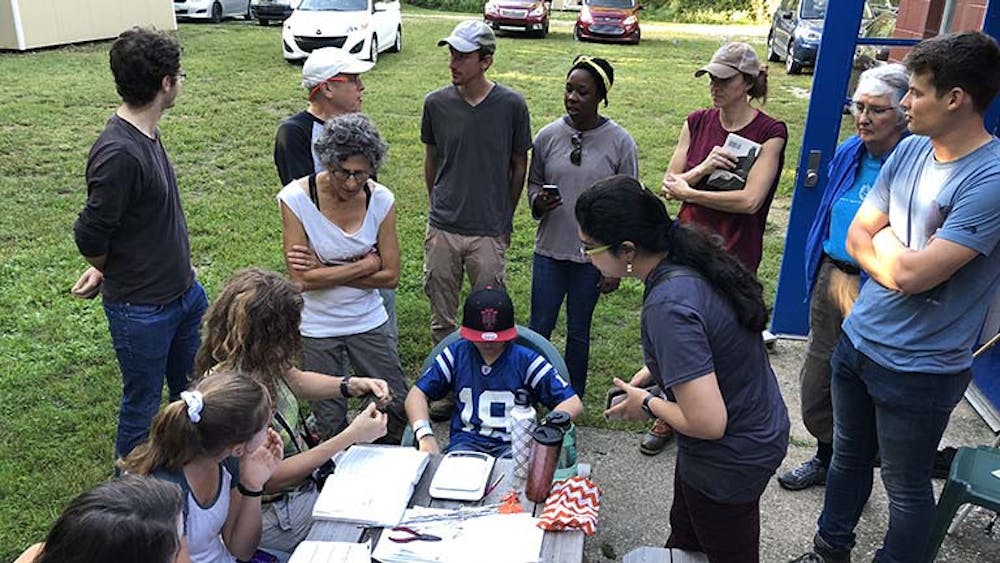Fifty years after Martin Luther King Jr.’s assassination, IU senior Calvin Sanders said he would describe the popular American legacy and image of the civil rights leader as “Dr. King Lite.”
Sanders said he feels King’s memory has been made more palatable to the mainstream by focusing only on his efforts to fight racism and ignoring his efforts against other “evils” such as poverty and militarism.
“Unfortunately, the way we remember his legacy, it recognizes his greatness but not the entirety thereof,” Sanders said. “He was a warrior for all humankind, and the cost of us putting him on this pedestal is us focusing on one aspect.”
Americans reflected on King’s legacy Wednesday, the 50th anniversary of his murder. Some black students at IU expressed a desire to remember a fuller version of King and for Americans to realize the fights King spurred onward are not yet complete.
Ayinde Rochon, a member of the Pre-Law Division of the Black Law Student Association, said he feels the way King is remembered today overlooks some of his more radical ideas.
He added that, despite modern-day praise of King’s nonviolent protest, he was still seen as a threat in his lifetime and killed.
“When a leader like that dies, it takes away the ability to have a physical person to rely on for answers,” Rochon said. “Obviously that was instrumental to the civil rights movement.”
Mica Caine, a senior and member of Delta Sigma Theta, said while it is important to honor King, she would also like to see more appreciation of other black leaders, such as Malcolm X and Kathleen Cleaver, a Black Panther Party leader.
Caine said these people do not receive as much appreciation because they were not as accommodating of white Americans’ feelings as King.
Caine added it is important to remember King’s successes alongside his flaws, namely that he was a “womanizer.”
“For women, it’s important to know our history and the landscape of misogyny,” Caine said. “Once we recognize that, we can be a better voice and be more honest.”
Sanders said he will honor King by trying to be involved in his community and using his business education to help students through résumé workshops or by creating a scholarship fund.
Caine said she sees King’s methods of creating change as indirect and working the systems that already exist. As she moves into her career, she said she plans to use these strategies if need be to make her workplace more equitable.
“If I see a lack of cultural competence in our office, I can be in position to have an impact rather than just demanding these things,” Caine said.
Multiple students said they feel there is a gap between the perception and reality of progress made since King’s death.
“Just because it happened 50 years ago, I think people assume so much time has passed, so we must have advanced,” Sanders said.
However, when looking at income inequality, housing and school segregation, Sanders said he thinks it is apparent not nearly enough progress has been made.
Rochon said a lack of progress is evident from his own family’s experiences. During conversations with his dad about the racism they have endured, Rochon was struck by how little had changed since his dad attended college in the 1980s.
Rochon said he hopes he can make things different for his own children than they were for himself and his father.
“I want to make sure it’s a better place when the new generation comes in,” Rochon said.






